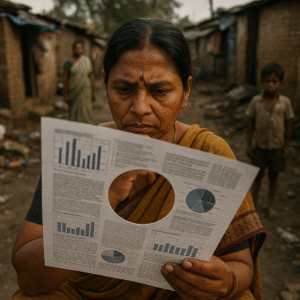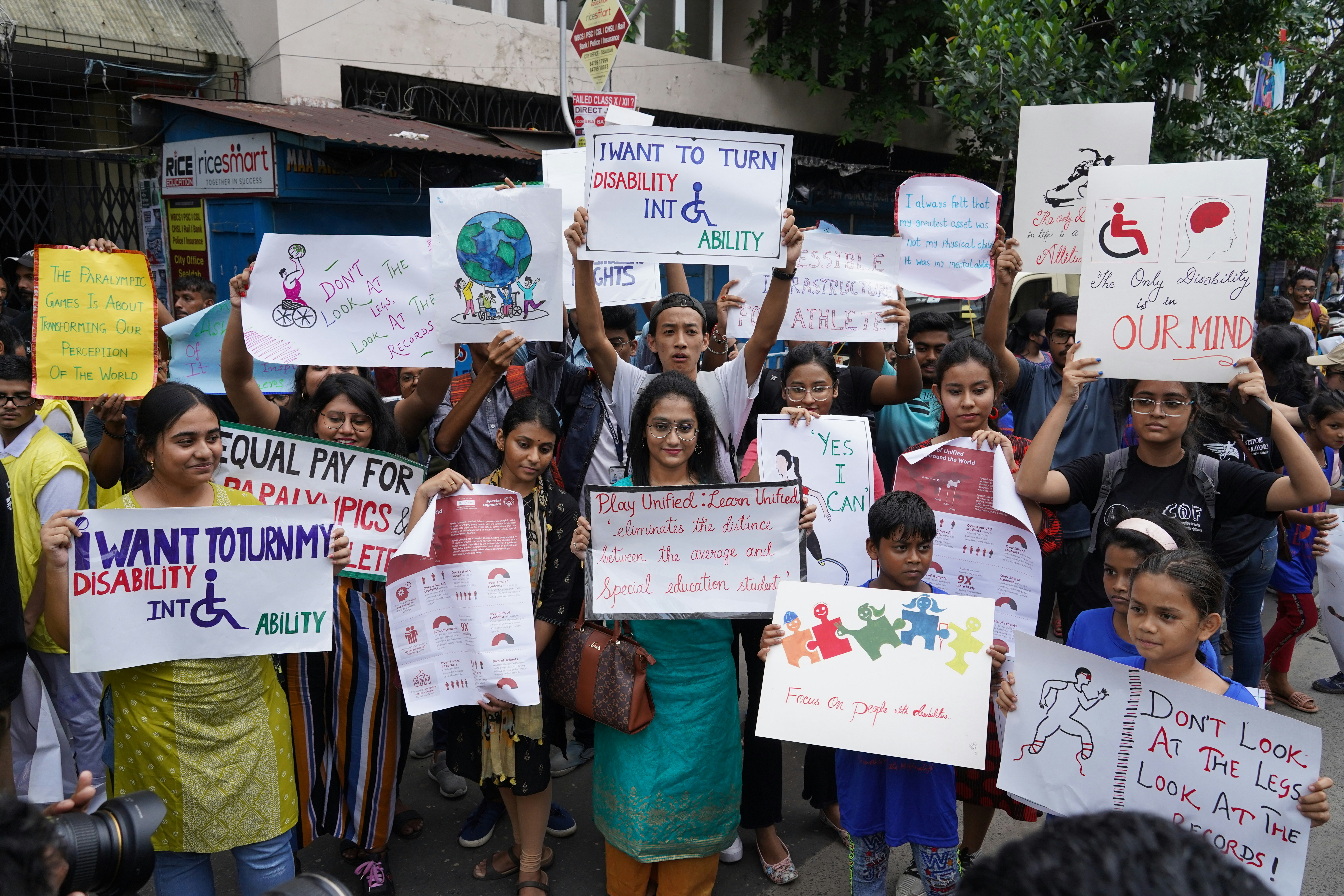
The social work profession, founded on principles of social justice and change, faces a profound paradox: while demonstrably effective in providing individual-level support and intervention, it has often failed to solve, or has inadequately addressed, large-scale social problems. This report examines this central tension, arguing that the profession’s limitations are not a result of a lack of professional dedication but are deeply rooted in historical complicity, systemic barriers, and an institutional focus on micro-level intervention that often neglects broader structural reform. The analysis reveals a complex interplay of factors, including a historical narrative that has minimized its own role in perpetuating racist systems, a public perception that amplifies failure while ignoring success, and an internal crisis of burnout and vicarious trauma fueled by chronic under-resourcing.
The report identifies several key “grand challenges” that exemplify these shortcomings, from the persistence of poverty and the growing digital divide to the emerging crisis of climate migration. It demonstrates that these issues are not isolated but are interconnected, demanding a fundamental reorientation of the profession’s priorities. The path forward requires a shift away from a reactive, symptom-treating model to a proactive, macro-focused approach. This requires a three-part framework for reform: advocating for significant policy and funding changes, overhauling educational and professional development to incorporate anti-oppressive and decolonized frameworks, and instituting organizational changes that support practitioner well-being and empower them to address the root causes of social injustice. This report provides a foundational resource for strategists and policymakers seeking to empower the social work profession to fulfill its foundational mission of challenging social injustice and creating a more equitable society.
🎧 Listen to the Article
Experience the content in audio form — perfect for learning on the go.
1. Introduction: The Paradox of Social Work

The social work profession has a rich history of advocating for the most vulnerable and marginalized populations, with its foundational values centered on service and social justice.1 Practitioners are tasked with challenging social injustice and working toward social change, particularly on behalf of oppressed and vulnerable groups.2 This commitment has translated into meaningful impact on an individual level. Evidence indicates that a wide range of social work interventions are effective, with approximately two-thirds of clients benefiting in measurable ways across various populations and social problems.3
However, this micro-level efficacy exists in tension with the profession’s limited success in solving or adequately addressing large-scale societal issues. Despite decades of intervention, problems like poverty, homelessness, and violence persist, often on a multi-generational scale.5 This report frames this tension as the central paradox of social work: a profession with a broad mandate for social change that is often constrained by a narrow focus on individual-level services. This dynamic is not merely an abstract, theoretical concept; it is a lived reality for practitioners, and this friction between ideals and reality is a primary driver of burnout and professional attrition.

The challenges faced by the profession are not new, but have been amplified by a confluence of historical, structural, and internal factors. The public and media often overlook the quiet victories—stopping a crisis before it happens or helping a family stay together—while spotlighting the moments when something goes wrong.7 This “invisible success, public failure” dynamic is a fundamental aspect of the profession’s existence, creating a demoralizing environment for those on the front lines.7 The emotional toll of confronting difficult situations on a daily basis, compounded by under-resourcing and a demanding workload, can lead to emotional stress and burnout.8 This report aims to move beyond a simple critique of professional efficacy to a nuanced analysis of the systemic and structural factors at play, providing a framework for understanding and addressing these deep-seated challenges.
🎥 Watch the Highlights
A visual summary that brings the key points to life.
2. Historical and Structural Impediments

The limitations of the social work profession are not new, but are deeply embedded in its history and its current place within societal structures. An understanding of these impediments is crucial for charting a path toward a more effective and just future.
📊 Explore the Interactive Dashboard
Dive deeper with dynamic tools and data you can explore yourself.
Unseen Frontlines
An interactive exploration of critical social issues emerging or being overlooked within the social work profession.
Comparative Analysis of Neglected Issues
This visualization compares the estimated level of professional neglect across five emerging social issues. A higher score indicates a greater gap between the scale of the problem and the current focus of mainstream social work education, training, and practice. Use this to understand the relative urgency and attention required for each area.
The Digital Divide & Service Access
As essential services move online, a significant portion of vulnerable populations are left behind due to ‘digital poverty’—a lack of access to devices, reliable internet, and the skills to use them. This section explores the disparity between the growing technological needs of clients and the current capacity of social work professionals to address this barrier.
Why It’s Overlooked
Traditional social work models have been slow to integrate technology. Curriculums often lack training in digital literacy support, and agencies may not have the resources to provide technological aid, leading practitioners to focus on more immediate, traditional needs like housing or food security, even when digital access is key to solving those very problems.
Recommendations
Integrate digital literacy and resource navigation into social work education. Advocate for public and private funding for low-cost internet and device programs. Develop agency-level protocols for assessing and addressing clients’ technological barriers.
Client Need vs. Professional Readiness
The Silent Crisis in Male Mental Health
Men, particularly in younger and middle-aged demographics, face a silent mental health crisis, culminating in disproportionately high suicide rates. Societal expectations of stoicism often prevent men from seeking help, and many social services are not designed or promoted in ways that effectively engage them. This section highlights the stark reality of this gendered health disparity.
Why It’s Overlooked
The field has historically, and rightly, focused on the needs of women and children, who are more likely to engage with services. This has unintentionally created a gap in expertise and outreach for men. Services may use language or frameworks that feel alienating, and a lack of male practitioners can also be a barrier for some men seeking relatable support.
Recommendations
Develop and fund male-specific mental health outreach programs. Train professionals in gender-sensitive therapeutic approaches. Promote mental health conversations in male-dominated spaces like workplaces and sports clubs. Increase recruitment of male social workers.
Suicide Rates per 100,000 (US)
Eco-Social Work & Climate Justice
Climate change is a social justice issue. Its effects—such as displacement from natural disasters, food insecurity, and health problems from pollution—disproportionately harm marginalized and low-income communities. “Eco-social work” is an emerging field that addresses these macro-level challenges, yet it remains on the periphery of mainstream practice.
Why It’s Overlooked
Social work has traditionally focused on individual and family casework (“micro” practice) rather than large-scale environmental and political issues (“macro” practice). The problem can feel too vast and abstract for direct intervention, and practitioners are often not equipped with the ecological knowledge or policy advocacy skills to effectively engage.
Recommendations
Incorporate environmental justice into the core social work curriculum. Develop skills in community organizing and policy advocacy around environmental issues. Partner with climate action groups to provide support to affected communities. Advocate for preventative measures and sustainable development.
Global Internally Displaced Persons by Disasters
Youth Loneliness & Social Isolation
While loneliness in the elderly is a well-established area of social work, a growing epidemic of profound loneliness and social isolation among young adults (ages 18-29) often goes unaddressed. This issue is a precursor to serious mental health conditions but is frequently dismissed as a normal part of life rather than a critical area for intervention.
Why It’s Overlooked
Crisis-oriented systems prioritize more visible problems like substance abuse or homelessness. Young adults are perceived as digitally connected and self-sufficient. There’s a lack of funding for preventative, community-building programs for this age group compared to programs for adolescents or senior citizens.
Recommendations
Recognize youth loneliness as a public health issue. Fund and develop community-based programs that facilitate genuine social connection (e.g., group hobbies, mentoring). Train professionals to screen for loneliness and social isolation during assessments.
The Scale of the Problem
of young adults report feeling lonely “frequently” or “always”.
The Profession’s Own Crisis: Burnout
The social work profession is failing to address a critical internal issue: epidemic levels of practitioner burnout. Unsustainable caseloads, low compensation, and high rates of secondary trauma lead to a massive turnover rate. This not only harms professionals but directly compromises the quality and consistency of care provided to vulnerable clients.
Why It’s Overlooked
A culture of self-sacrifice is pervasive in the “helping professions.” Systemic issues like underfunding are often accepted as unchangeable realities. There is more focus on client outcomes than on the well-being of the workforce providing the services. Admitting to burnout can be seen as a personal failing rather than a systemic one.
Recommendations
Advocate fiercely for increased funding to lower caseloads and raise salaries. Implement mandatory trauma-informed supervision and mental health support for staff. Promote organizational cultures that prioritize work-life balance and practitioner well-being as essential for effective service delivery.
System Strain: Reality vs. Sustainability
2.1. Acknowledging a Troubled Past: The Complicity in Oppression
Despite its stated mission of social justice, social work has a complex and troubling history of complicity in perpetuating systemic racism and oppression. The profession’s foundations were often rooted in Eurocentric beliefs, and its early practitioners were complicit in a “racialization of poverty,” which labeled people of color as “inherently inferior” and in need of being “saved” from their own cultures.11 This stands in stark contrast to the view of White people, who were often considered “victims of circumstances” who could be educated and helped.11
This historical narrative is often minimized in social work education, a process referred to as “whitewashing” that overlooks the contributions of Black, Indigenous, and other people of color (BIPOC) leaders.11 The result is a perpetuated myth of “white saviorism” that has historically amplified the power differentials within the profession.11 This historical complicity is not confined to the past; it has left a legacy of generational trauma and institutional racism that the profession continues to grapple with.11 Without a critical understanding of its own past, social work is ill-equipped to challenge the very structural and systemic barriers it helped create and maintain. The limited efficacy in addressing issues like persistent poverty and criminal justice reform can be understood, in part, as a consequence of this historical blind spot, which has hindered the profession from acting as a truly transformative force for change.

2.2. The Retreat from Macro-Practice and Policy Advocacy
Historically, social work was deeply involved in leading reform efforts for disenfranchised populations.13 However, the profession’s focus largely shifted toward a more individualized, case management-focused approach, causing it to “largely relinquish its influence” on significant structural issues like the mass incarceration phenomenon.13 This retreat from macro-practice during the punitive era is viewed as a missed opportunity to influence policy and systemic reform.13 Now, as the country seeks to reverse mass incarceration, there is a call for social work to re-enter this arena, with decarceration framed as a unique opportunity to lead evidence-driven reform and prevent history from repeating itself.13
While the NASW continues to engage in advocacy on issues such as reproductive rights, police reform, and social safety nets, this broader, policy-level work often remains separate from the day-to-day work of individual practitioners.1 This creates a disjuncture between the profession’s stated ideals of social change and the reality of a practice that is often confined to mediating and navigating complex systems on behalf of individual clients.14
2.3. The “Invisible Success, Public Failure” Paradox
A significant structural impediment to social work’s legitimacy and efficacy is the “invisible success, public failure” paradox.7 The nature of the profession is such that its victories are often quiet, private, and go unnoticed. When a crisis is averted, a child is kept safe, or a family is stabilized, there is no public recognition, no headline to celebrate the achievement.7 These successes disappear into the background, becoming “invisible victories”.7

In contrast, when a tragedy strikes—such as a child’s death or a mismanaged case—the failures are immediately thrust into the public spotlight. The media, politicians, and the public are quick to criticize, often casting social workers as “villains” for systemic failures that are largely beyond their control.7 This phenomenon is a direct contributor to occupational stigma, where adverse public views can negatively impact the legitimacy and efficiency of social services.15 The perception of social work is not shaped by the countless unseen successes, but by the public failures that are dissected and judged.7
This dynamic creates a negative feedback loop. Public and media scrutiny of failures contributes to adverse public perceptions and a lack of legitimacy, which makes it difficult to secure adequate funding and resources.16 Low resources and high caseloads, in turn, lead to practitioner burnout and high turnover, making the system more prone to the errors that are then seized upon by the media.7 This self-perpetuating cycle of systemic dysfunction fundamentally undermines the profession’s capacity to do its work effectively and to address the grand challenges facing society.
3. The Unaddressed Grand Challenges

The social work profession’s inability to solve large-scale problems is particularly evident in its approach to what have been called the “Grand Challenges for Social Work”.6 These challenges are not static, but are evolving, interconnected issues that demand a re-evaluation of the profession’s core competencies and a shift from reactive to proactive intervention.
3.1. Persistent Poverty and Economic Inequality
Poverty is a core issue that social workers have a professional responsibility to address, both by tackling its immediate effects and working to decrease it over time.2 Social workers are crucial in helping individuals and families meet basic physiological needs, such as food, clothing, and shelter, and they are well-versed in connecting clients with community resources and assistance programs.5
However, the profession’s traditional focus on these individual-level interventions is often insufficient to dismantle the complex, structural dynamics that sustain poverty. The issue has no single cause, and its impacts are far-reaching, affecting all parts of a person’s life, from education and nutrition to community involvement.5 While social workers can help clients move from “survival mode” to planning for the future, the systemic barriers to economic opportunity often go unaddressed, leaving poverty as a persistent and intergenerational problem.5 The limited efficacy in this area is a direct result of addressing the symptoms of poverty without having the systemic influence or resources to tackle its root causes, such as discriminatory policies, unemployment, and economic inequality.2
3.2. The Digital Divide
The digital age has introduced a new social problem that the profession has been slow to address adequately: the digital divide.18 This refers to the unequal access to digital tools, internet connectivity, and the necessary literacy to use technology effectively.18 This divide exacerbates existing inequalities based on socioeconomic status, geographic location, age, and disability.18
The COVID-19 pandemic served as a stark case study, revealing that these disparities could no longer be ignored.19 The crisis highlighted the specific challenges for older adults, many of whom lack the financial resources or technical skills to use technology for telehealth, social engagement, and accessing vital information.19 While the profession has begun to address this through advocacy and technology training for vulnerable populations, the response remains emergent and has not yet been scaled to match the scope of the problem.18 The digital divide is not merely a technological issue; it is a barrier to accessing healthcare, education, and employment, all of which are traditional social work domains. This new, interconnected challenge demands a fundamental shift in how the profession conceives of and responds to its traditional areas of practice.
3.3. Climate Migration and Environmental Injustice
Arguably the most ignored and inadequately addressed “grand challenge” is the climate crisis and its social consequences. Climate change is not just an environmental issue; it is a driver of social inequity, as it disproportionately affects low-income communities, people of color, and marginalized groups.20 These populations often live in ecologically vulnerable areas and are the least equipped to recover from environmental disasters.21 The crisis is also a direct driver of displacement, creating “climate migrants” who often lack the legal recognition and international protections afforded to political refugees, placing a significant burden on the social workers who assist them.20
While social workers are beginning to play an important role in climate change adaptation, community resilience, and disaster risk reduction, the profession’s response is still in its nascent stages.23 The need for the profession to expand its role to the international level is increasingly urgent, as a human rights framework is necessary to hold governments and organizations accountable for climate action.23 The profession’s future effectiveness depends on its ability to see climate change not as separate from its mission, but as a complex force that amplifies existing problems and requires new, interdisciplinary approaches and a shift from merely treating the fallout to actively mitigating the root causes.
| Grand Challenge | Social Work’s Established Role | Social Work’s Emerging Role | Key Barriers to Efficacy |
| Persistent Poverty | Meeting basic physiological needs; connecting clients with resources; case advocacy 5 | Advocating for policy changes, campaigning at state/federal level 5 | Systemic economic inequality, limited resources, and an emphasis on individual-level intervention over macro-reform 5 |
| The Digital Divide | Using telehealth and digital tools for service delivery 26 | Providing technology training; advocating for equitable access and policy reform; combating isolation 18 | Socioeconomic and geographic barriers to access; lack of institutional focus on this emergent issue 18 |
| Climate Migration | Emergency preparedness; providing shelter and supplies to displaced people 22 | Advocating for human rights and social justice; developing community resilience programs; engaging in disaster management 20 | Lack of legal recognition for climate migrants; inadequate professional education on environmental issues; limited institutional focus 20 |
4. The Internal Crisis: Barriers to Efficacy

The profession’s external struggles are inextricably linked to a profound internal crisis that limits its capacity and effectiveness. This crisis is rooted in the high emotional and psychological demands of the work, which are compounded by chronic under-resourcing and systemic constraints.
4.1. Vicarious Trauma and Burnout: The Cost of Caring
Social work is a physically and emotionally demanding profession that requires practitioners to assist people through hard times on a daily basis.7 This continuous exposure to hardship and structural oppression takes a significant toll, leading to widespread experiences of burnout and vicarious trauma.9 While burnout is a state of prolonged physical and psychological exhaustion, vicarious trauma is the cumulative effect of exposure to the traumatic experiences of clients, which can lead to intrusive thoughts, disturbed sleep, and a loss of personal identity.10
These are not personal failings but are a direct consequence of the systemic conditions under which social workers operate. The NASW Code of Ethics sets a high bar, requiring social workers to “challenge social injustice” and “elevate service to others above self-interest”.2 However, the profession operates in a system with insufficient organizational support, high caseloads, and low resources.7 This creates a fundamental conflict: the professional ideal is to solve systemic problems, but the practical reality is a daily struggle with individual crises, which leads to feelings of powerlessness and exhaustion.10 The professional expectation to “maintain boundaries” and practice “self-care” is paradoxical, as the system itself makes it structurally difficult to set limits or take time off.7 This crisis is a symptom of a structurally flawed system that sets its professionals up for failure by demanding a macro-level impact with only micro-level tools and resources.
| Symptoms of Burnout/Vicarious Trauma | Systemic Causes |
| Difficulty leaving work on time 10 | High caseloads; relentless paperwork 7 |
| Feelings of frustration, fear, and irritability 10 | Continuous exposure to structural oppression and social injustice at work 10 |
| Intrusive thoughts about a client’s situation 10 | High emotional demands; direct engagement with suffering 8 |
| Low job satisfaction 10 | Under-resourcing; lack of role clarity; lack of public recognition for successes 7 |
| Feeling under pressure, powerless, and overwhelmed 10 | Limited resources; conflict between professional ideals and practical reality 7 |
| Loss of pleasure in daily activities 10 | Demoralizing nature of public failure and invisibility of success 7 |
4.2. Ethical Dilemmas and Structural Barriers
The internal crisis is also reflected in the daily ethical dilemmas and structural barriers that social workers face. Professionals are often required to balance conflicting professional values, such as the duty to maintain client confidentiality versus the obligation to report suspected harm.30 In child welfare and family services, for example, a social worker must balance giving a voice to a younger client with the legal obligation to report abuse.30 Similarly, in healthcare and mental health settings, professionals must decide when to implement involuntary treatment to protect a client from harming themselves or others, all while respecting the principle of client autonomy.30
Beyond these ethical conflicts, social workers are consistently challenged by structural and systemic barriers that are often beyond their control.28 These are obstacles—such as policies, practices, or cultural norms—that perpetuate stark disparities in outcomes and disproportionately affect marginalized groups.28 Examples include a lack of affordable and accessible transportation, limited health insurance, and institutional racism and sexism.28 While social workers can advocate for their clients on an individual basis, these systemic barriers often require large-scale policy and funding reform to be addressed effectively.29 The NASW Code of Ethics requires social workers to act to “expand choice and opportunity for all people,” particularly the vulnerable and oppressed 32, but this mandate is often in direct conflict with a system that limits the resources and influence needed to achieve it.
5. A Path Forward: Towards a Reinvigorated Profession

To overcome these historical and structural impediments, social work must undergo a fundamental reorientation of its educational frameworks and practice models. The path forward requires a shift from its traditional, often narrow focus to a more radical, structural approach that addresses the root causes of social injustice.

5.1. The Promise of Anti-Oppressive and Decolonizing Practice
The rise of anti-oppressive practice (AOP) and decolonizing social work represents a necessary and profound course correction for the profession. AOP is a transformative framework that goes beyond addressing individual needs to challenge the societal structures—including policies, institutions, and cultural norms—that reinforce inequality and marginalize communities.29 This approach prioritizes policy advocacy and community organizing as core professional responsibilities, moving away from a sole focus on case management.29
Decolonizing social work, a more radical approach, seeks to dismantle the Eurocentric foundation that has permeated social work education and practice since its inception.34 It challenges the assumption that Western methodologies are universally applicable and often fail to consider the lived realities of non-Western populations.34 This framework moves beyond simple “cultural competence” to integrate Indigenous and Afrocentric frameworks that prioritize community, collective well-being, and a holistic view of healing.12 For example, decolonized practice moves beyond traditional Western diagnostic labels and incorporates community-defined treatments, traditional ceremonies, and a relational worldview.12 This framework is not just an academic exercise; it is a direct attempt to rectify the profession’s historical complicity in racism and oppression, and to overcome the foundational biases that have limited its ability to achieve genuine social justice.12
| Area of Practice | Traditional/Eurocentric Approach | Decolonized/Indigenous Approach |
| Education | Syllabus and curriculum heavily rooted in Eurocentric perspectives; lack of Native content 12 | Diversify curriculum; integrate Indigenous knowledge, skills, and values; use teaching methodologies like talking circles 12 |
| Research | Push for evidence-based practices (EBPs) based on a Western medical model that emphasizes distress 12 | Reject the randomized controlled trial as the gold standard; prioritize community-driven methodologies; question who benefits from research 12 |
| Client Engagement | Use of Western diagnostic labels and treatment plans that can be disconnected from a client’s culture 12 | Re-examine diagnostic labels; incorporate culturally relevant approaches like storytelling; prioritize listening and co-creating meaning with clients 34 |
| Concepts of Wellness | Emphasis on individual dysfunction and pathology 12 | Focus on collective well-being and community; incorporate Indigenous and Afrocentric frameworks; recognize that healing is a communal journey 12 |
5.2. Reclaiming and Expanding Advocacy
A critical component of a reinvigorated profession is a return to its roots in policy and structural advocacy. The profession must expand its role beyond individual “case advocacy” to “cause advocacy” that addresses the systems and structures that perpetuate social problems.14 This means social workers must insist on being involved in “critical conversations” with interdisciplinary teams and policymakers to create genuine structural and social change.32

The NASW’s advocacy work on issues like police reform, criminal justice, and the social safety net serves as a model for this kind of macro-level engagement.1 Social workers’ unique “person in environment” view provides a holistic approach that needs to be integrated into these high-stakes discussions.32 By harnessing their expertise in a strengths-based, resiliency perspective, social workers can effectively speak for the “silenced” and ensure that policy solutions are culturally informed and equitable.32 This re-engagement with macro-level practice is not a deviation from the profession’s mission but is a necessary step to fulfill its foundational promise of challenging social injustice.
Conclusion: Synthesizing the Challenges and Charting a Course
The social work profession’s perceived failures are not a result of a lack of professional dedication but are rooted in a complex interplay of historical complicity, systemic under-resourcing, and an overemphasis on individual-level intervention. The analysis presented in this report reveals a fundamental paradox: a profession that is highly effective in providing individual support is often rendered powerless against the large-scale societal problems it is mandated to address. The historical narrative of complicity in racism, the public’s focus on failure, and the internal crisis of burnout all contribute to a vicious cycle that undermines the profession’s legitimacy and efficacy.
The path forward requires a fundamental shift in practice, education, and policy to move beyond merely treating the symptoms of social problems and toward actively dismantling their root causes. The frameworks of anti-oppressive and decolonized practice offer a blueprint for this transformation, providing a way to correct historical wrongs, challenge systemic biases, and empower communities in a truly meaningful way. Reclaiming its role as a leader in policy and structural advocacy is not just an opportunity for the profession to expand its influence but is a moral imperative to fulfill its founding mission.

Frequently Asked Questions
What are the biggest challenges facing the social work profession today?
How does digital poverty impact vulnerable communities?
What is the difference between micro and macro social work?
Why is men’s mental health a growing concern in social care?
What is the role of social workers in climate justice?
What causes professional burnout among social workers?
Why is youth loneliness a serious issue?
How can social work help reduce recidivism?
Why do social workers struggle to address large-scale social issues?
What new skills do social workers need for the future?
Join the Quiz: Gaps in Social Work Click here
Recommendations
Based on the synthesis of the analysis, the following recommendations are proposed to empower the social work profession and enable it to more effectively address the complex social issues facing society.
Policy and Funding Reform
- Increase Public and Private Funding: A central recommendation is to advocate for a significant increase in funding for social services from both government and private sources. 16 This would allow agencies to reduce practitioner caseloads, provide a living wage, and offer adequate resources for clients, directly combating the burnout crisis and improving the quality of service delivery. 7
- Advocate for Structural Policy Changes: Social workers and professional associations must expand their advocacy efforts to influence legislative and policy changes that address the root causes of social problems. 1 This includes campaigning for initiatives that support a robust social safety net, push for economic equity, and address barriers to basic needs like affordable housing, transportation, and health insurance. 28
- Promote Interdisciplinary Collaboration: Social workers should actively seek and insist on being included in transdisciplinary teams tasked with addressing complex societal challenges, such as chronic illness and urban planning. 32 The profession’s person-in-environment perspective is essential for ensuring that policy and research account for the lived experiences of vulnerable populations. 32
Educational and Professional Development
- Integrate Decolonized and Anti-Oppressive Frameworks: Social work curricula should be fundamentally reformed to mandate the integration of anti-oppressive and decolonized frameworks. 11 This requires confronting the profession’s history of complicity in oppression, de-centering Eurocentric norms, and teaching students to incorporate Indigenous and Afrocentric concepts of wellness and community-based practices into their work. 12
- Expand Training on Emerging Issues: Social work education should broaden its curriculum to include training on new and complex issues such as climate migration and the digital divide. 18 This involves providing students with the knowledge and skills to address climate-related displacement, advocate for environmental justice, and provide digital literacy training to combat technological inequities. 18
- Promote Macro-Level Skills: Education should place a greater emphasis on teaching macro-level skills, including policy analysis, community organizing, and program development. 6 This would equip future social workers to engage in cause advocacy and structural change, rather than being confined to individual-level case management. 14
Practice and Organizational Change
- Address Burnout and Vicarious Trauma at a Systemic Level: Organizations must recognize that burnout is not a personal failing but an “occupational health and safety issue”. 10 This requires implementing mandatory reflective supervision, enforcing manageable caseloads, and fostering a culture that prioritizes practitioner well-being, going beyond simple self-care tips. 9
- Value Invisible Successes: Organizations and practitioners must actively work to celebrate and document the quiet victories that define so much of the profession. 7 By shifting the internal narrative to value these successes, the profession can combat the demoralizing effects of the public failure paradox and improve practitioner retention. 7
- Support Practitioner Autonomy: Organizations should provide greater autonomy and resources to practitioners to navigate daily ethical dilemmas and structural barriers. 28 This includes providing access to transportation vouchers, translation services, and other resources that address the systemic obstacles that impede effective service delivery. 28
Works cited
- Advocacy – National Association of Social Workers, accessed September 18, 2025, https://www.socialworkers.org/Advocacy
- Code of Ethics: English – National Association of Social Workers, accessed September 18, 2025, https://www.socialworkers.org/About/Ethics/Code-of-Ethics/Code-of-Ethics-English
- Outcomes of social work intervention in the context of evidence-based, accessed September 18, 2025, https://www.researchgate.net/publication/234096562_Outcomes_of_social_work_intervention_in_the_context_of_evidence-based_practice
- www.researchgate.net, accessed September 18, 2025, https://www.researchgate.net/publication/234096562_Outcomes_of_social_work_intervention_in_the_context_of_evidence-based_practice#:~:text=Findings%3A%20There%20is%20now%20a,workers%20benefit%20in%20measurable%20ways.
- Poverty and Social Work – online MSW program – Florida State University, accessed September 18, 2025, https://onlinemsw.fsu.edu/blog/poverty-and-social-work
- The 12 Grand Challenges for Social Work – UNE Online – University of New England, accessed September 18, 2025, https://online.une.edu/blog/12-grand-challenges-social-work/
- Social work success is invisible, but failure is public, accessed September 18, 2025, https://www.mysocialworknews.com/article/social-work-success-is-invisible-but-failure-is-public
- Pros and Cons of Becoming a Social Worker | University of Phoenix, accessed September 18, 2025, https://www.phoenix.edu/articles/social-work/pros-and-cons-of-becoming-a-social-worker.html
- Social Worker Burnout: 8 Self-Care Tips – online MSW program – Florida State University, accessed September 18, 2025, https://onlinemsw.fsu.edu/blog/social-worker-burnout
- Vicarious trauma and burnout | Safe and Equal, accessed September 18, 2025, https://safeandequal.org.au/working-in-family-violence/wellbeing-self-care-sustainability/vicarious-trauma-burnout/
- Dynamics of Color: Whitewashing in Social Work History – Social …, accessed September 18, 2025, https://www.social-current.org/2022/03/dynamics-of-color-whitewashing-in-social-work-history/
- An Indigenous Perspective on Decolonizing Social Work, accessed September 18, 2025, https://www.bu.edu/ssw/files/2021/03/Final-Decolonizing-SWK-PPT.pdf
- Decarcerating America | Grand Challenges for Social Work, accessed September 18, 2025, https://grandchallengesforsocialwork.org/grand-challenges-for-social-work/decarcerating-america/
- The History and Importance of Advocacy in Social Work, accessed September 18, 2025, https://onlinesocialwork.vcu.edu/blog/advocacy-in-social-work/
- (PDF) Social Workers’ Experiences of Public Perceptions of the Social Work Profession: An Exploratory Study – ResearchGate, accessed September 18, 2025, https://www.researchgate.net/publication/388028934_Social_Workers’_Experiences_of_Public_Perceptions_of_the_Social_Work_Profession_An_Exploratory_Study
- NASW Foundation Funds, accessed September 18, 2025, https://www.naswfoundation.org/Supporters/NASW-Foundation-Annual-Fund/Foundation-Funds
- Global Study Highlights Deteriorating Conditions for Social Workers and Opportunities for Advocacy, accessed September 18, 2025, https://www.ifsw.org/global-study-highlights-deteriorating-conditions-for-social-workers-and-opportunities-for-advocacy/
- Inequality in the Digital Age: The Role of Social Work in Bridging the Digital Divide – IJNRD, accessed September 18, 2025, https://ijnrd.org/papers/IJNRD2412214.pdf
- COVID-19 and the Digital Divide: Will Social Workers Help Bridge …, accessed September 18, 2025, https://pmc.ncbi.nlm.nih.gov/articles/PMC7718300/
- The Social Worker’s Role in Climate-Induced Crises – Venture, accessed September 18, 2025, https://venturemagazine.net/blog/the-social-worker-s-role-in-climate-induced-crises
- Strengthening the Social Response to the Human Impacts of Environmental Change, accessed September 18, 2025, https://aaswsw.org/wp-content/uploads/2015/03/Social-Work-and-Global-Environmental-Change-3.24.15.pdf
- Climate change and displacement | UNHCR, accessed September 18, 2025, https://www.unhcr.org/what-we-do/build-better-futures/climate-change-and-displacement
- Evolving Roles for International Social Work in Addressing Climate Change – MDPI, accessed September 18, 2025, https://www.mdpi.com/2076-0760/14/1/35
- The Social Worker’s Role in Reducing Recidivism and Improving Community Reintegration, accessed September 18, 2025, https://onlinesocialwork.vcu.edu/blog/social-workers-role-in-reducing-recidivism/
- The Persistent Poverty Initiative’s Framework to Address Social and Economic Determinants of Cancer – PubMed, accessed September 18, 2025, https://pubmed.ncbi.nlm.nih.gov/40746119/
- The Future of Social Work: Trends and Innovations | National University, accessed September 18, 2025, https://www.nu.edu/blog/the-future-of-social-work-trends-and-innovations/
- Strengthening the social service workforce to protect children | UNICEF, accessed September 18, 2025, https://www.unicef.org/protection/strengthening-social-service-workforce
- Structural & Systemic Barriers – Together We Will, accessed September 18, 2025, https://intogetherwewill.com/systemic-barriers/
- Ultimate Guide To Anti-Oppressive Social Work – 2025 Checklist …, accessed September 18, 2025, https://www.socialworkportal.com/social-anti-oppressive-practice/
- Ethical Challenges in Social Work: Navigating Complex Cases, accessed September 18, 2025, https://www.indwes.edu/articles/2024/12/ethical-challenges-in-social-work-navigating-complex-cases
- Social Workers’ Ethical Responsibilities to Clients, accessed September 18, 2025, https://www.socialworkers.org/About/Ethics/Code-of-Ethics/Code-of-Ethics-English/Social-Workers-Ethical-Responsibilities-to-Clients
- Increase Social Work Involvement in the Complex Issues Facing our Society, accessed September 18, 2025, https://grandchallengesforsocialwork.org/grand-challenges-for-social-work/increase-social-work-involvement-in-the-complex-issues-facing-our-society/
- Anti-oppressive practice, accessed September 18, 2025, https://en.wikipedia.org/wiki/Anti-oppressive_practice
- Decolonizing Social Work: Reclaiming Authentic Healing and Practice, accessed September 18, 2025, https://queensofsocialwork.net/blogs/social-justice-and-representation/decolonizing-social-work-reclaiming-authentic-healing-and-practice
- Full article: Social work for a greener planet: reframing social work skills and education to mitigate the climate crisis, accessed September 18, 2025, https://www.tandfonline.com/doi/full/10.1080/23311886.2024.2444469




















Get Involved!
Leave a Comment